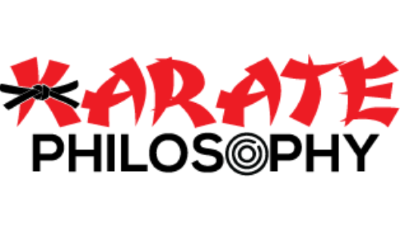Gichin Funakoshi‘s 20th precept of karate has been translated as “Be constantly mindful, diligent, and resourceful, in your pursuit of the Way” (一、常に思念工夫せよ Hitotsu, tsune ni shinen kufū seyo). However, the Japanese version simply means “Always be thoughtful and resourceful.” Although the translator was right in adding “in your pursuit of the way” (implying the way of the empty hand (karate-do)) but this certainly is applicable in both karate and in life.
With this precept, Funakoshi encourages us to be thoughtful, resourceful and ingenious in our pursuit of the way and in our life.
Be Thoughtful
Being thoughtful in martial arts means thinking deeply about everything we do, including all aspects of kihon, kata and kumite practice.
For example, if you practice a simple choku tsuki (straight punch), you shouldn’t just go through the motions like a robot. Instead, you should constantly think about what you can do to improve the technique, such as how to reduce tension in your body, how your hips should initiate the strike and not your arm, what the trajectory of your striking hand should be, and which foot should feel the most weight and force at the kime point. Mastering any basic technique is extremely hard and the only way toward it is to continually think about the small details that can help improve your techniques.
Repeating a technique mindlessly can help you become fitter but, unless you keep digging deeper, asking questions, testing out and observing the outcome, you can’t make real progress. Worse still, you may become very efficient at performing a technique badly and, given enough time, it’ll become very difficult to unlearn and correct.
Similarly, in kumite, you need to think critically and analytically about your opponents, actions, strategies, and decisions. It involves understanding the situation, your opponent’s strengths and weaknesses, and the available options before making a move. If you continually practice this way, over time, after many years of training, you’ll be able to fight naturally and instinctively without conscious thoughts and planning.
Being thoughtful in your daily life beyond your karate practice involves actively considering the feelings, needs, and well-being of others as you navigate your routines. For instance, a way to practice thoughtfulness is by showing kindness to those around you – whether they’re your family, friends, colleagues, or even strangers. A smile, a friendly greeting, or a small act of help can go a long way in brightening someone’s day. Doing something thoughtful for others without expecting anything in return not only brings happiness to them but also cultivates your own happiness and satisfaction. This is how you create a life that is both happy and fulfilling.
Be Resourceful
Resourcefulness in martial arts involves creatively utilizing the tools, techniques, and knowledge at your disposal to overcome challenges both in your training and physical confrontations. It’s about adapting to unexpected situations and finding innovative solutions to make progress and achieve your goals.
For instance, if you must take on extra family responsibilities and have to reduce your training sessions from three times a week to just one, don’t just accept this new status quo. Find time gaps in your days and see if you can add more training time at home to make up for the missed sessions. If you need to go on a business trip for a few week, make an effort to train during your travel to keep yourself fit and continue to make progress in your karate. You can certainly train even in a small hotel room if you are passionate enough about karate.
Being resourceful is particularly crucial when things don’t go as planned during a fight or training session. It might involve adjusting your tactics on the fly, exploiting your opponent’s vulnerabilities, or making the most of your environment. If you maintain a “never give up” attitude, you will discover ways to achieve victory and reach your desired goals.
All Posts in the Series:
Precept 1: Do Not Forget that Karate-do Begins and Ends with Rei
Precept 2: There Is No First Strike in Karate
Precept 3: Karate Stands on the Side of Justice
Precept 4: First Know Yourself Then Know Others
Precept 5: Mentality Over Technique
Precept 6: The Mind Must Be Set Free
Precept 7: Calamity Springs from Carelessness
Precept 8: Karate Goes Beyond the Dojo
Precept 9: Karate Is a Lifelong Pursuit
Precept 10: Apply the Way of Karate to All Things, Therein Lies Its Beauty
Precept 11: Karate Is Like Boiling Water: Without Heat, It Returns to Its Tepid State
Precept 12: Do Not Think of Winning, Think, Rather, of Not Losing
Precept 13: Make Adjustments According to Your Opponent
Precept 14: The Outcome of a Battle Depends on How One Controls Truth and Fiction
Precept 15: Think of the Opponent’s Hands and Feet as Swords
Precept 16: When You Step Beyond Your Own Gate, You Face a Million Enemies
Precept 17: Kamae Is For Beginners; Later, One Stands In Shizentai
Precept 18 – Perform Kata Exactly; Actual Combat Is Another Matter
Precept 20: Be Constantly Mindful, Diligent, and Resourceful in Your Pursuit of the Way
References:
Gichin Funakoshi (1938) The Twenty Guiding Principles of Karate

